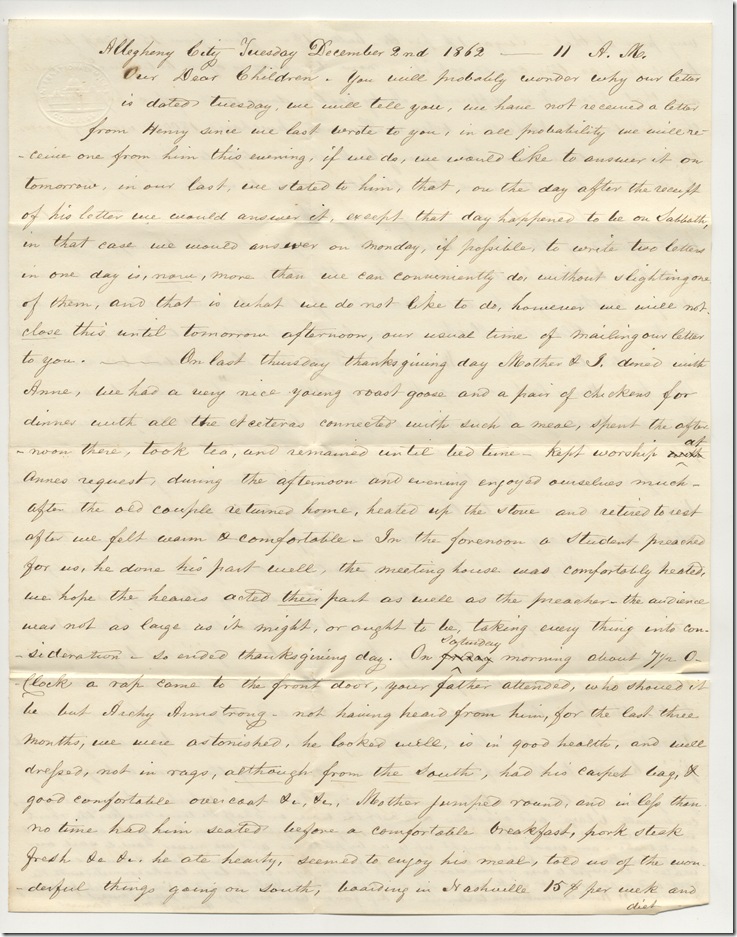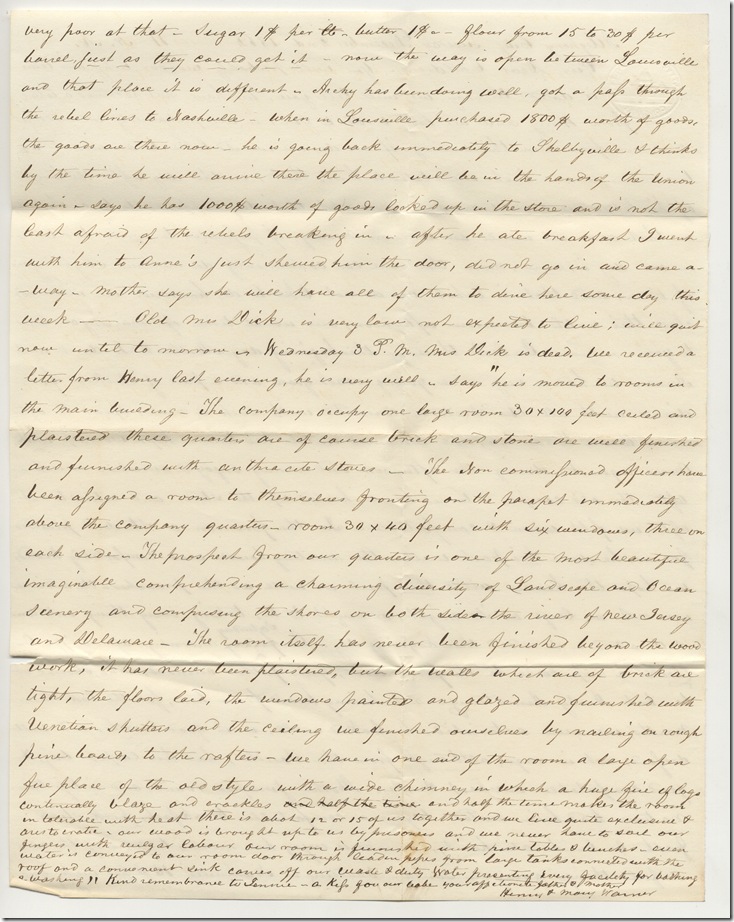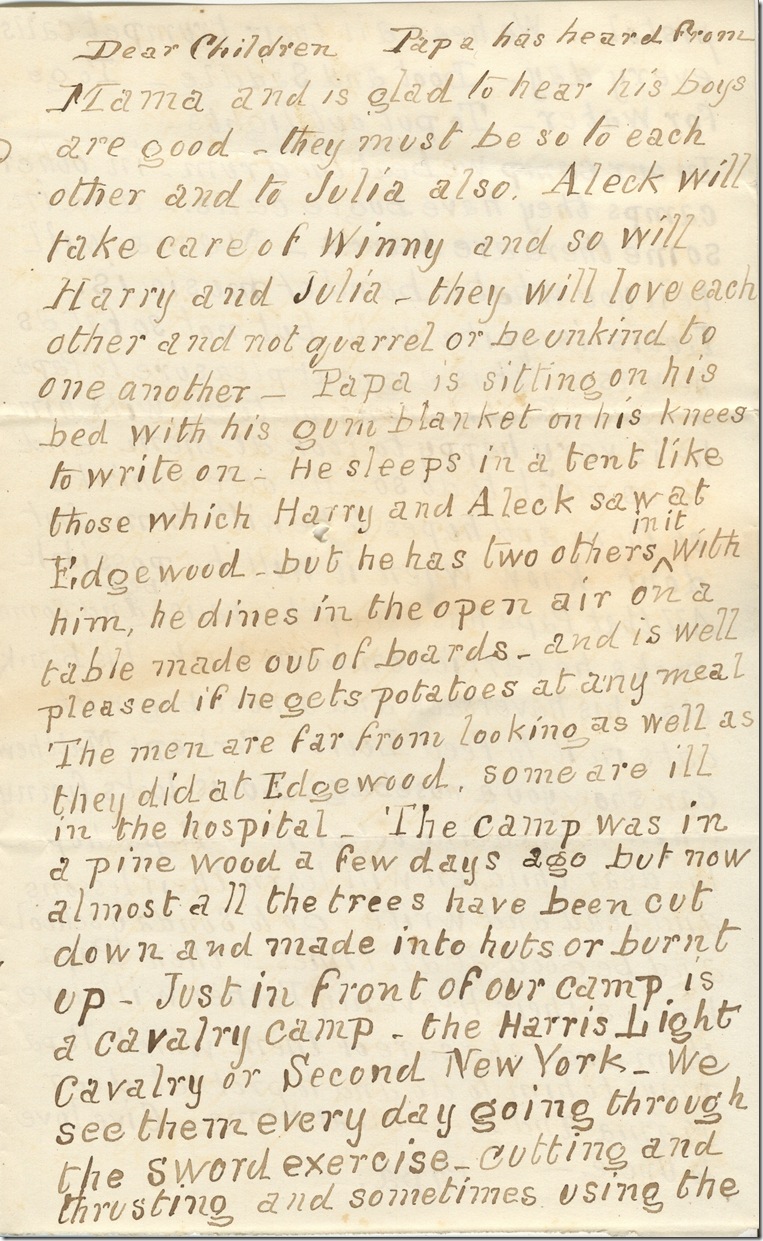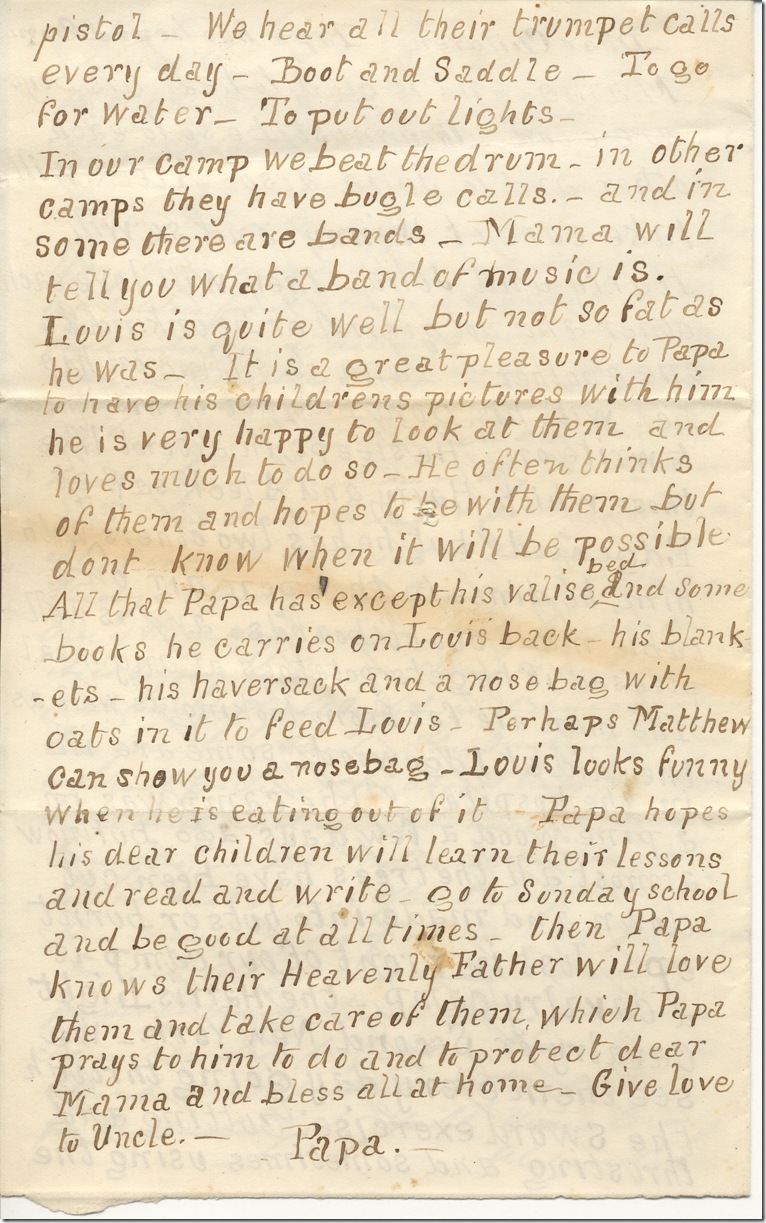Henry and Mary Warner lived in Allegheny City, Pennsylvania, now part of Pittsburgh. They are the great-grandparents of poet Marianne Moore. By the 1860s they had three surviving children: John, Henry, and Anne. Their letters to John, a Presbyterian minister living in Gettysburg, are preserved as part of Marianne Moore’s family papers.
Transcript:
Allegheny City Tuesday December 2nd 1862 11 A.M.
Our Dear Children—You will probably wonder why our letter is dated tuesday, we will tell you, we have not received a letter from Henry since we last wrote to you, in all probability we will receive one from him this evening, if we do, we would like to answer it on tomorrow, in our last, we stated to him, that, on the day after the receipt of his letter we would answer it, except that day happened to be on Sabbath, in that case we would answer it on Monday, if possible, to write two letters in one day is, now, more than we can conveniently do, without slighting one of them, and that is what we do not like to do, however we will not close this until tomorrow afternoon, our usual time of mailing our letter to you. On last thursday thanksgiving day Mother & I dined with Anne, we had a very nice young roast goose and a pair of chickens for dinner with all the et ceteras connected with such a meal, spent the afternoon there, took tea, and remained until bed time—kept worship at Annes request, during the afternoon and evening enjoyed ourselves much—after the old couple returned home, heated up the stove and returned to rest after we felt warm & comfortable—In the forenoon a student preached for us, he done his part well, the meetinghouse was comfortably heated, we hope the hearers acted their part as well as the preacher—the audience was not as large as it might, or ought to be, taking every thing into consideration—so ended thanksgiving day. On Saturday morning about 7 ½ oclock a rap came to the front door, your father attended, who should it be but Archy Armstrong—not having heard from him, for the last three months, we were astonished, he looked well, is in good health, and well dressed, not in rags, although from the South, had his carpet bag, good comfortable overcoat &c &c. Mother jumped round, and in less than no time had him seated before a comfortable breakfast, pork steak fresh &c &c. he ate hearty, seemed to enjoy his meal, told us of the wonderful things going on South, boarding in Nashville 15$ per week and diet very poor at that—sugar 1$ per lb, butter 1$– flour from 15 tp 30$ per barrel, just as they could get it—now the way is open between Louisville and that place it is different—Archy has been doing well, got a pass through the rebel lines to Nashville—when in Louisville purchased 1800$ worth of goods, the goods are there now—he is going back immediately to Shelbyville & thinks by the time he will arrive the place will be in the hands of the Union again—says he has 1000$ worth of goods locked up in the store and is not the least afraid of the rebels breaking in—after he ate breakfast I went with him to Anne’s just shewed him the door, did not go in and came away—Mother says she will have all of them to dine here some day this week—Old Mrs Dick is very low not expected to live; will quit now until to-morrow—Wednesday 3 P.M. Mrs Dick is dead. We received a letter from Henry last evening, he is very well—says “he is moved to rooms in the main building—The company occupy one large room 30 x 100 feet ceiled and plaistered these quarters are of course brick and stone are well finished and furnished with anthracite stoves—The non commissioned officers have been assigned a room to themselves fronting on the parapet immediately above the company quarter—room 30 x 40 feet with six windows, three on each side—The prospect from our quarters is one of the most beautiful imaginable comprehending a charming diversity of Landscape and Ocean scenery and comprising the shores on both sides the river of New Jersey and Delaware—The room itself has never been finished beyond the wood work, it has never been plaistered, but the walls which are of brick are tight, the floor laid, the windows painted and glazed and furnished with Venetian shutters and the ceiling we finished ourselves by nailing on rough pine boards, to the rafters—we have in one end of the room a large open fire place of the old style with a wide chimney in which a huge fire of logs continually blaze and crackles and half the time makes the room intolerable with heat there is about 12 or 15 of us together and we live quite exclusive & aristocratic—our wood is brought up to us by prisoners and we never have to soil our fingers with vulgar labour our room is furnished with pine tables & benches—even water is conveyed to our room door through leaden pipes from large tanks connected with the roof and a convent sink carries off our waste & dirty water presenting every facility for bathing & washing” Kind remembrance to Jennie—a kiss for our babe Your affectionate father & mother
Henry & Mary Warner
Citation: Henry and Mary Warner, autograph letter signed to John Riddle Warner. Allegheny City [Pittsburgh], 2 December 1862. Moore VI:05:13



